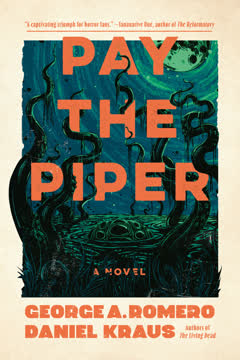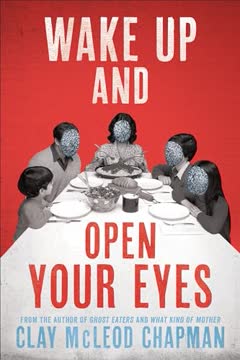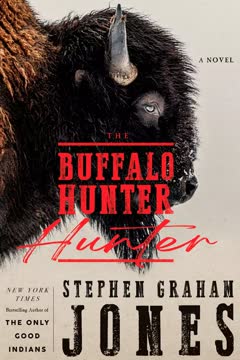Plot Summary
Swamp Carnival Arrival
Every January 8, Bob Fireman's Wagon Wheel Carnival rolls into Alligator Point, a Louisiana bayou town clinging to old legends and new decay. Nine-year-old Pontiac, bookish and bold, races through the swamp, flashlight in hand, eager for the annual spectacle. The carnival's arrival is more than entertainment—it's a ritual, a reminder of the region's history, and a brief escape from the poverty, cancer, and secrets that fester in the damp. As the lights flicker and the air thickens with sugar and lies, Pontiac steels herself for the Chamber of Dragons, determined to prove her courage and keep track of everything, just as her late mother instructed.
Night Voices and Fears
As the swamp's darkness deepens, Billy May, Pontiac's best friend, is haunted by the legend of the Piper—a child-snatching spirit said to lure the fearful into the quick. When a voice calls to him from outside his window, promising cigarettes and camaraderie, Billy's curiosity and loneliness override his caution. The voice, shifting between familiar and strange, draws him out into the night, where the scent of lilacs and the promise of belonging mask a deeper, older hunger. Billy's decision to follow marks the beginning of a chain of disappearances and a confrontation with the town's oldest evil.
Keeping Track
Pontiac's mother's dying wish was for her daughter to "keep track"—of her father, of the dead, of everything that matters. Armed with a battered composition notebook, Pontiac records the minutiae of bayou life: quicksand, blue flowers, limping dogs, and the ever-present cancer that claims her neighbors. Her log is both shield and weapon, a way to impose order on chaos and to resist the erasure that threatens her family and community. As she faces the Chamber of Dragons alone, her resolve is tested by fear, anger, and the need to prove herself in a world that forgets too easily.
The Piper's Invitation
Billy May's midnight encounter is not with a classmate, but with Pierre—the Piper incarnate. The boy's charm and mystery mask a predatory intent, and as they journey through the swamp, Billy is drawn deeper into a story older than the town itself. The Piper's tale, a twisted version of the Pied Piper legend, reveals the power of names, the danger of masks, and the price of broken promises. Billy's fate is sealed not by violence, but by seduction—by the longing to belong, to be brave, to be seen.
Chamber of Dragons
Inside the Chamber of Dragons, Pontiac confronts her greatest fear: the cottonmouth, a snake whose danger lies in its deception. The exhibit's darkness and isolation amplify her anxiety, but also her determination. As she faces the glass, recalling her father's warnings and her own stubborn pride, Pontiac realizes that bravery is not the absence of fear, but the refusal to be ruled by it. The encounter leaves her shaken, but alive—a small victory in a place where survival is never guaranteed.
The Piper's Story
As Billy and Pierre traverse the swamp, the Piper recounts his own version of the Hamelin tale—one where the children are not led to safety, but to destruction, as payment for the sins of their elders. The story is a warning and a threat, a reminder that debts must be paid, and that the past is never truly buried. Rain falls only on the boys, a supernatural sign that the Piper's power is real and that the reckoning is at hand. Billy's fear turns to terror as he realizes he is not the hero of this story, but its sacrifice.
Cottonmouth Strikes
In the Chamber of Dragons, Pontiac's bravado is shattered when the cottonmouth strikes, its fangs clacking against the glass and venom spraying down. The illusion of safety is broken, and Pontiac is forced to confront the reality that danger is not always where you expect it. Adult hands pull her from the floor, humiliation mixing with relief. The experience leaves her marked—by fear, by shame, and by the knowledge that the monsters of the swamp are both real and symbolic.
The Piper Revealed
Billy May's journey with the Piper ends in horror as the boy's human guise dissolves, revealing a monstrous, eyeless mass. The Piper's hand, now a tangle of tusks and flesh, tears Billy's heart from his chest and devours it. The last thing Billy sees is a mouth "so white, so white"—the same whiteness that lured him, the same that marks the cottonmouth's deadly strike. The Piper is not just a legend, but a force that feeds on the forgotten, the fearful, and the unprotected.
Lawmen and Loss
Sheriff Pete Roosevelt and his deputy, Spuds Ulene, investigate Billy May's disappearance, navigating the swamp's physical and emotional hazards. Their partnership, forged in hardship and mutual respect, is tested by the town's secrets and the specter of the Oil Man, whose contracts threaten to erase Alligator Point. The lawmen's search is as much for meaning as for missing children, and their journey reveals the interconnectedness of personal and communal loss.
Longside Origins
Pete and Spuds's history is one of rescue and redemption, their bond forged in the violence and vulnerability of bayou life. Spuds, once a bullied outcast, finds purpose and belonging as Pete's deputy, while Pete, haunted by his own failures, seeks absolution in service. Their relationship is a microcosm of the town's struggles—against poverty, prejudice, and the relentless pull of the past.
Confronting the May Family
The lawmen's visit to the May household exposes the fractures within the family and the community. William May Sr.'s denial and anger mask a deeper fear—the knowledge that something ancient and malevolent is stalking the town's children. The confrontation is both literal and symbolic, a reckoning with the failures of fathers, the vulnerability of mothers, and the helplessness of those sworn to protect.
Daddy's Warnings
Gerard Pontiac, Pontiac's father, is a man undone by loss and addiction. His warnings to his daughter—about storms, about the thing in the swamp, about the dangers of curiosity—are both protective and prophetic. Gerard's own battles with the "nasty-sugar" of alcohol mirror the town's struggle with its own poisons, both literal and metaphorical. His love for Pontiac is fierce but flawed, a reminder that even the best intentions can be twisted by circumstance and history.
Fishing for the Dead
Pontiac's attempt to fish at Guimbarde Beach becomes a meditation on loss, as she imagines pulling up the corpse of her friend Billy May. The presence of André Saphir, a surrogate father and local legend, offers comfort and wisdom, but also underscores the limits of protection in a world where the past is always present. The discovery of a baseball—Billy May Part II—serves as both a talisman and a reminder that the dead are never truly gone.
Vomit and Marbles
Gerard's battle with his own body—his vomiting, his memories of childhood marbles, his confrontation with a sentient, bubbling puddle—mirrors the town's struggle with its own demons. The swamp is both setting and character, a living entity that demands payment for past sins. Gerard's defiance is both heroic and futile, a stand against forces too vast to comprehend.
Keeping Track of Loss
As the storm gathers, Pontiac records her observations, determined to keep track even as the world unravels. The act of writing becomes an act of resistance, a way to assert meaning in the face of chaos. The baseball, the log, the shells—all become symbols of memory, loss, and the hope that keeping track might one day make a difference.
Gerard's Gambit
Gerard's recollection of his childhood marble victory becomes a metaphor for the town's struggle—a reminder that sometimes, against all odds, a single act of courage can change everything. As the swamp's forces gather, Gerard prepares to make his own stand, armed with nothing but memory, love, and the hope that this time, luck will be on his side.
Miss Ward's Classroom
Miss Ward, the town's beloved teacher, uses music and art to keep her students engaged and hopeful. Her Coke bottle riddle becomes a symbol of the town's hidden histories and the challenge of seeing clearly in a world clouded by lies. The presence of Billy May's empty desk is a silent testament to loss, and Miss Ward's own grief is a reminder that even the strongest must find ways to keep going.
Miss Ward's Grief
Miss Ward's private life is marked by the loss of Jack O'Brien, a man who fought the swamp's evil and paid the ultimate price. Her watercolors, her rituals, and her isolation are all attempts to keep his memory alive and to find meaning in a world that seems determined to forget. The arrival of the Oil Man's papers signals the end of an era, and Miss Ward's decision to fight is both personal and political.
Pork Fat's Plan
Pork Fat, a teenage musician, dreams of leaving the Point and making a life for herself in the city. Her talent and determination are both a source of hope and a target for the Piper, who preys on those who dare to want more. Her disappearance is both a tragedy and a warning—a reminder that the swamp does not easily release those who belong to it.
Pete's Red Witch
Pete Roosevelt's obsession with John Wayne and the "Red Witch" of cancer becomes a metaphor for the town's own slow demise. The story of the Duke's death, the legacy of violence and loss, and the ever-present threat of the Oil Man all converge in Pete's struggle to find meaning and redemption in a world that seems determined to erase him.
Blind Bull-Belly's Song
Pork Fat's encounter with Blind Bull-Belly, a mysterious musician, becomes a test of her ambition and her vulnerability. The promise of a song in her heart is both a gift and a curse, as the Piper's true nature is revealed. The swamp's magic is seductive, but its price is always higher than expected.
The Piper's Price
The Piper's bargain with Pork Fat is a reminder that talent and ambition are not enough to escape the swamp's hunger. The use of Billy May's head as a musical instrument is a grotesque symbol of the town's failure to protect its children, and Pork Fat's fate is a warning to all who would try to leave without paying the price.
The Shootist's Dream
Pete's dream of being diagnosed with cancer by Jimmy Stewart, his hero's humiliation, and the nuclear devastation that follows are all metaphors for the town's own reckoning. The Red Witch is both disease and destiny, a force that cannot be outrun or denied. Pete's awakening is a reminder that even heroes must face their end.
Another Pointer Gone
The disappearance of Pork Fat, the discovery of her bones, and the mourning of her bandmates are all reminders that the swamp's hunger is insatiable. Pete's investigation is both a search for justice and an act of mourning, as he confronts the limits of his own power and the inevitability of loss.
Zydeco Chowder's Lament
The band's final performance, the loss of Pork Fat, and the realization that the Point is dying are all woven together in a tapestry of grief and nostalgia. The music that once brought joy now serves as a requiem for a world that is slipping away.
Spuds's Fears
Spuds's terror of quicksand, his belief in the Piper, and his faith in Pete are all tested as the town's foundations crumble. The octopus carvings, the stories of monsters, and the reality of evil all converge in a moment of reckoning, as Spuds is forced to confront the darkness within and without.
Doc's Mercantile
Doc Devereaux's store is both a lifeline and a mausoleum, filled with the detritus of a dying town. His relationship with Pontiac, his regrets over lost love, and his struggle to keep track of the living and the dead are all reminders that survival is as much about memory as it is about money.
Doc's Regrets
Doc's journals, his record of every death, and his inability to save his wife Emily are all testaments to the limits of medicine and the power of grief. The act of keeping track becomes both a blessing and a curse, a way to honor the dead and a reminder of every failure.
Pontiac's Bargain
Pontiac's deal with Doc, her discovery of the zombi bottle, and her relentless curiosity are all signs of her resilience and her vulnerability. The bottle, a symbol of pain and memory, becomes both a burden and a responsibility, a reminder that caring for the past is never easy.
Odd Confederacy
Doc and Pontiac's partnership, forged in mutual need and respect, becomes a model for the kind of community the Point needs to survive. Their differences are less important than their shared commitment to keeping track, to remembering, and to fighting for what matters.
Pirate Truths
The revelation that the Pirates Lafitte were not heroes but slavers and murderers shatters Pontiac's faith in the stories she's been told. Doc's insistence on truth, even when it hurts, is a challenge to the town's collective memory and a call to reckon with the past.
Night Visitations
Pontiac's encounter with the thing that wears Miss Ward's face is a test of her will and her loyalty. The promise of pleasure, the threat of violence, and the invocation of Billy May's memory all converge in a moment of crisis, as Pontiac chooses to resist the Piper's lure and defend herself with the only weapon she has—her friend's memory.
The Oil Man's Shadow
The Oil Man's presence looms over the town, his contracts promising escape but delivering erasure. The decision to sign or resist is both personal and communal, a test of loyalty, memory, and hope.
Last Day of School
The final day at Bullock Elementary is marked by disappointment and resignation, as Pontiac loses the Coke bottle contest to a wealthier classmate and realizes that the world is not fair. The shrinking class, the empty desks, and the looming closure of the school are all signs that the Point's time is running out.
The Whiz-Bang Earned
Pontiac's acquisition of the Whiz-Bang fishing rod is both a triumph and a farewell, a symbol of her determination and the end of her childhood. The loss of the zombi bottle, the suspicion of Miss Ward, and the gathering storm all signal that the reckoning is near.
Miss Ward's Resolve
Miss Ward's confrontation with her own grief, her decision to take up Jack O'Brien's weapons, and her resolve to face the evil in the swamp are acts of defiance and hope. Her journey is both personal and communal, a stand against forgetting and a call to action.
Gerard's Reckoning
Gerard's escape from the Point, his reunion with his mother in Pensacola, and his struggle to detox are all acts of desperation and love. The process is painful, both physically and emotionally, but it is also a chance for redemption and renewal.
Storm at Guimbarde
The storm that devastates the Point is both literal and symbolic, a manifestation of the Piper's wrath and the town's accumulated sins. Pontiac's near-drowning, Saphir's rescue, and the rain of Junonias are all signs that the world is changing, and that survival will require new ways of seeing and being.
Exodus to the Dry
Pontiac and Gerard's journey to Pensacola is both an escape and a mourning, a chance to start over and a reminder of all that has been lost. The bus ride, the new school, and the unfamiliar routines are all challenges, but also opportunities for growth and change.
Pensacola Refuge
Life in Pensacola is both easier and harder than the swamp—easier in its comforts, harder in its expectations. Pontiac's resistance to dresses, her longing for the Point, and her determination to keep track are all signs that the past is never truly left behind.
Daddy Detox
Gerard's battle with withdrawal is both a physical ordeal and a spiritual reckoning. The support of Mère, the presence of Pontiac, and the memory of all he has lost and failed are both burdens and blessings. The process is a crucible, burning away the past and forging something new.
All Feathers, No Meat
Mère's stories, the family's meals, and the memories of the Point are all ways of keeping track, of honoring the dead and learning from the past. The phrase "All Feathers, No Meat" becomes a metaphor for loss, for the emptiness that comes from forgetting, and for the hope that comes from remembering.
Spuds's Last Ride
Spuds's encounter with his father, the lure of the past, and the final surrender to the quick are all reminders that the swamp's hunger is insatiable. The Piper's power is not just in violence, but in the seduction of memory, the promise of belonging, and the inevitability of loss.
Funeral and Reckoning
Spuds's funeral, the gathering of the town, and Miss Ward's confrontation with Pete are all moments of reckoning. The question of who is responsible, of what can be done, and of whether redemption is possible hangs over the survivors like a storm.
Miss Ward and Pete
Miss Ward and Pete's argument is both personal and symbolic, a confrontation between memory and denial, action and resignation. The decision to fight, to keep track, and to seek justice is both a burden and a blessing.
Pete and Pat
Pete's partnership with Pat Wilkes, their shared love of John Wayne, and their decision to face the storm together are acts of courage and hope. The recognition that the real enemy is not the swamp, but the greed and violence that have shaped it, is a turning point.
Wake of the Red Witch
Pete's recollection of his mother's crime, his own failures, and the lessons of John Wayne are all reminders that the past is never truly past. The decision to fight, to stand with Pat, and to face the Piper is both an act of redemption and a final stand.
St. John's Eve
As the carnival lights flicker and the tentacle descends, the town's survivors are forced to confront the Piper's judgment. The rain, the marbles, the mirrors—all are signs that the time for keeping track has come, and that the price of forgetting is destruction.
Gerard's Farewell
Gerard's decision to return to the Point, to face the Piper, and to make amends is both an act of love and a recognition of responsibility. The passing of the log, the promise to keep track, and the hope for a better future are all acts of faith in the possibility of change.
Gatorskin Journals
Doc's journals, Pontiac's log, and the act of keeping track become the town's last defense against oblivion. The recognition that the Piper is not just a monster, but a force demanding remembrance and justice, is both a revelation and a challenge.
Shoot Your Shot
The confrontation with La Pieuvre, the breaking of the mirrors, and the decision to "shoot your shot" are all acts of defiance and hope. The recognition that the real enemy is not the swamp, but the legacy of violence and forgetting, is both a burden and a blessing.
Carnival Reckoning
The storm's destruction, the loss of life, and the survival of a few are all reminders that reckoning is both personal and communal. The survivors are left to mourn, to remember, and to rebuild.
The Tentacle Descends
The tentacle's attack, the breaking of the mirrors, and the chorus of the dead are all signs that the time for reckoning has come. The survivors are left to choose—pass the buck, or pay the Piper.
Through the Storm
The aftermath of the storm, the gathering of the survivors, and the recognition that the world has changed are all reminders that the past is never truly past, and that the future depends on the willingness to remember, to keep track, and to act.
Chamber of Dragons Redux
Pontiac's return to the Chamber of Dragons, her confrontation with the cottonmouth, and her survival are all acts of defiance and hope. The recognition that bravery is not the absence of fear, but the refusal to be ruled by it, is both a lesson and a legacy.
The Piper's Judgment
The voices of the drowned, the demand for justice, and the recognition that the past must be remembered are all signs that the time for keeping track has come. The survivors are left to mourn, to remember, and to rebuild.
Carnival Confrontation
Pete's confrontation with the tentacle, his sacrifice, and his final words are all acts of courage and hope. The recognition that the real enemy is not the swamp, but the legacy of violence and forgetting, is both a burden and a blessing.
Marbles and Mirrors
The throwing of the Brothers of the Spear, the breaking of the mirror, and the possibility of redemption are all acts of defiance and hope. The recognition that the past must be remembered, and that the price of forgetting is destruction, is both a lesson and a legacy.
Spuds's Knee
The use of Spuds's prosthetic knee to break the mirror, the recognition of the power of friendship, and the hope for a better future are all acts of faith in the possibility of change.
Bright Darks
Pontiac's survival of the cottonmouth bite, her rescue by Saphir, and the rain of Junonias are all signs that the world is changing, and that survival will require new ways of seeing and being.
The Reckoning
The voices of the drowned, the demand for remembrance, and the recognition that the past must be kept track of are all signs that the time for reckoning has come.
Junonia Chorus
The rain of Junonias, the chorus of the dead, and the recognition that the past must be remembered are all acts of defiance and hope.
This Is a Reckoning
The recognition that the world is at a turning point, that the past must be remembered, and that the future depends on the willingness to keep track and to act.
Doc's Choice
Doc's decision to pay the Piper, to accept the price of the past, and to hope for a better future are all acts of faith in the possibility of change.
Pete's End
Pete's final stand, his recognition of the real enemy, and his hope for a better future are all acts of courage and hope.
The Octopus's Lament
La Pieuvre's recognition of the limits of revenge, the hope for change, and the warning that the world is at a turning point are all reminders that the past must be remembered, and that the future depends on the willingness to keep track and to act.
New Beginnings
Pontiac and Gerard's journey to Pensacola, the passing of the log, and the hope for a better future are all acts of faith in the possibility of change. The recognition that the past must be remembered, that the price of forgetting is destruction, and that the future depends on the willingness to keep track and to act is both a lesson and a legacy.
Characters
Pontiac
Pontiac is a fiercely intelligent, mixed-race nine-year-old girl whose compulsion to "keep track" is both a shield against the chaos of her world and a weapon against the erasure of her family and community. Her log is her lifeline, a record of deaths, oddities, and injustices in Alligator Point. Pontiac's relationships—with her alcoholic father Gerard, her lost friend Billy May, and surrogate father Saphir—are marked by longing, loyalty, and a stubborn refusal to be cowed by fear. Her psychoanalytic core is a blend of precocious wisdom and childlike vulnerability; she is driven by a need to impose order, to remember, and to prove her worth in a world that forgets too easily. Her arc is one of survival, loss, and the hope that memory can be a form of resistance.
Gerard Pontiac
Gerard is a white Cajun laborer, broken by the death of his wife and his own addiction to "nasty-sugar." His love for Pontiac is fierce but often misdirected, clouded by shame, jealousy, and a sense of failure. Gerard's psychoanalysis reveals a man trapped by the past, desperate for redemption but unsure how to achieve it. His relationship with Pontiac is both protective and damaging, a testament to the complexities of love in a world marked by trauma. Gerard's journey—from drunken despair to a final act of courage and sacrifice—mirrors the town's own struggle to confront its history and seek renewal.
Billy May
Billy May is Pontiac's best friend, a timid, imaginative boy whose longing for acceptance makes him vulnerable to the Piper's seduction. His psychoanalytic profile is one of insecurity, a desire to be brave, and a fear of abandonment. Billy's fate—lured and consumed by the Piper—serves as a catalyst for the town's reckoning, a symbol of the cost of forgetting and the vulnerability of the unprotected. His memory haunts Pontiac and the community, a reminder that the dead are never truly gone.
The Piper / La Pieuvre
The Piper is both legend and reality, a shape-shifting force that preys on the town's children as payment for the sins of their ancestors. Psychoanalytically, the Piper represents the return of the repressed—the violence, greed, and forgetting that underpin the town's history. As La Pieuvre, the octopus god, the Piper is both judge and executioner, demanding remembrance, atonement, and justice. Its relationship to the characters is both personal and collective, a force that cannot be outrun or denied. The Piper's arc is one of vengeance, but also of warning—a call to keep track, to remember, and to change.
Pete Roosevelt
Pete is the town's former sheriff, a man defined by his sense of duty, his failures, and his obsession with John Wayne. His psychoanalysis reveals a deep need for redemption, a longing to be a hero, and a fear of being forgotten. Pete's relationships—with Spuds, Miss Ward, and the community—are marked by loyalty, regret, and a stubborn refusal to give up. His arc is one of sacrifice, as he confronts the Piper and pays the ultimate price, hoping that his actions will buy the town a chance at renewal.
Spuds Ulene
Spuds is Pete's deputy, a mentally challenged former jockey whose guilelessness and loyalty make him both beloved and vulnerable. His psychoanalysis reveals a longing for acceptance, a fear of abandonment, and a terror of quicksand—both literal and metaphorical. Spuds's fate—lured by the Piper in the guise of his father—serves as a symbol of the town's failure to protect its most vulnerable, and his memory haunts Pete and the community.
Miss Ward
Miss Ward is the town's beloved schoolteacher, marked by the loss of her lover Jack O'Brien and her own isolation. Her psychoanalysis reveals a deep commitment to memory, education, and the hope that art and music can be forms of resistance. Her relationships—with Pontiac, Pete, and the community—are marked by care, grief, and a growing resolve to confront the town's evil. Miss Ward's arc is one of transformation, as she moves from mourning to action, taking up Jack's weapons and leading the fight for remembrance and justice.
Doc Devereaux
Doc is the town's former doctor and current shopkeeper, a man defined by his meticulous record-keeping and his inability to save his wife Emily. His psychoanalysis reveals a deep sense of responsibility, a fear of failure, and a longing for redemption. Doc's relationships—with Pontiac, Miss Ward, and the community—are marked by care, regret, and a stubborn refusal to give up. His arc is one of sacrifice, as he chooses to "pay the Piper" and accept the price of the past in hopes of a better future.
André Saphir
Saphir is a mysterious, almost mythic figure, a fisherman who serves as a surrogate father to Pontiac and a keeper of the bayou's secrets. His psychoanalysis reveals a blend of wisdom, sadness, and resilience, a man who has learned to navigate the swamp's dangers and to find meaning in survival. His relationship with Pontiac is marked by care, mentorship, and a recognition of the limits of protection. Saphir's arc is one of quiet heroism, as he rescues Pontiac and helps her find her way in a changing world.
The Oil Man
The Oil Man is both a literal and symbolic figure, representing the forces of capitalism, extraction, and forgetting that threaten to erase Alligator Point. His psychoanalysis reveals a cold, calculating intelligence, a willingness to exploit and destroy for profit, and a detachment from the human cost of his actions. His relationship to the community is one of seduction and betrayal, offering escape at the price of memory and belonging. The Oil Man's arc is one of destruction, but also of warning—a reminder that the real enemy is not the swamp, but the greed and violence that have shaped it.
Plot Devices
Interwoven Narratives and Generational Curses
The novel employs a braided narrative structure, shifting between the perspectives of children and adults, lawmen and outcasts, teachers and healers. This multiplicity allows for a panoramic view of Alligator Point, revealing the interconnectedness of personal and communal trauma. The use of logs, journals, and oral histories as plot devices underscores the importance of memory and the act of keeping track. The Piper/La Pieuvre functions as both a supernatural antagonist and a metaphor for generational curses—the violence, greed, and forgetting that haunt the town. Foreshadowing is woven through recurring symbols: octopus carvings, marbles, baseballs, and the ever-present threat of the swamp. The narrative's climax—the breaking of the mirrors, the chorus of the dead, and the demand to "pay the Piper"—is both a literal reckoning and a call to collective memory and action.
Analysis
Pay the Piper is a Southern Gothic epic that fuses horror, folklore, and social critique into a reckoning with America's past and present. At its heart, the novel is about memory—who keeps it, who loses it, and who pays the price when it is forgotten. The swamp is both setting and symbol, a living entity that demands payment for the sins of slavery, greed, and erasure. The Piper/La Pieuvre is not merely a monster, but the embodiment of history's demand for justice, a force that cannot be appeased by denial or escape. The characters' struggles—with addiction, loss, ambition, and love—mirror the community's own fight to survive in the face of environmental and existential threats. The act of "keeping track"—through logs, journals, and stories—is both a form of resistance and a path to redemption. The novel's lesson is clear: reckoning is inevitable, but so is the possibility of renewal, if we are willing to remember, to keep track, and to act. In a world threatened by rising waters—literal and metaphorical—Pay the Piper insists that the only way forward is through honest confrontation with the past, collective responsibility, and the stubborn hope that even the most poisoned ground can yield new life.
Last updated:
Review Summary
Pay the Piper receives mixed reviews, with praise for its atmospheric Louisiana bayou setting, vivid characters, and Cajun dialect. Readers appreciate the blend of folk horror, cosmic elements, and social commentary. Many find the first two-thirds engaging but criticize the ending as disconnected. The book's exploration of historical themes and environmental issues resonates with some readers. Overall, opinions vary on the effectiveness of the horror elements and plot resolution, with ratings ranging from 1 to 5 stars.
Similar Books
Download PDF
Download EPUB
.epub digital book format is ideal for reading ebooks on phones, tablets, and e-readers.












